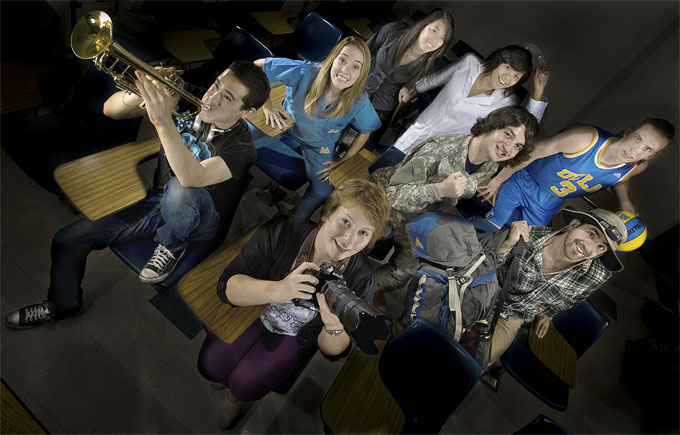As the nation faces a severe economic slump, UCLA students graduating this year remain optimistic about the job market, and many are pursuing alternatives to entering the work force.
It will be more difficult on average to find jobs this year than it would have been last year, especially if students are looking for jobs in California, where the unemployment rate is much higher than the national average, said Roger Farmer, graduate vice chair of economics at UCLA.
Farmer said as a result, more students will be applying to graduate schools, but he also said that UCLA students are in a better position than most Americans to weather the economic downturn.
“The premium on having skills in the workplace will only increase,” Farmer said.
Kathy Sims, director of the Career Center, also said while UCLA students might be receiving fewer job offers this year than last year, only 4 percent of individuals with bachelor’s degrees are unemployed.
Many UCLA students graduating this year are finding prospects in the job market, and many are relying on personal connections more than job boards such as Monster.
Joanna Ng, a fourth-year East Asian studies student, will be working at the James West Alumni Center next year. She said she secured the job because of connections she developed working there as a student.
Ng looked for entry-level jobs on BruinView before obtaining a position at the James West Alumni Center, but her search was not as successful because the market has become more competitive.
Laura Peirano, a fourth-year Design | Media Arts student, said she plans to look for a job in graphic design or a related field after she graduates.
“You have to know somebody to even get an interview now and that’s changed. So hopefully I’ll have connections,” Peirano said.
But students who aren’t entering the job market immediately after graduating are finding other options more attractive.
Sims said that for the last few years the trend with UCLA students has been to pursue various types of post-graduate experiences such as fellowships, internships and termed programs, including the Peace Corps and Teach for America.
Farmer said that in economic downturns, continuing eduction also becomes a more appealing option to students.
“Something like going to grad school always becomes more popular in a recession like this,” he said.
In the past few months, Kaplan has seen an increase in the number of students interested in their programs and a double-digit growth in the number of people attending their free events and practice tests, said Priya Dasgupta, Kaplan’s director of graduate programs.
“Many students view grad school as a safe way to ride out the challenging job market and come out even more employable,” Dasgupta said.
According to a Kaplan survey, 40 percent of pre-law students said the economic downturn influenced their decision to pursue a law degree.
As a result of an increase in graduate school tests and applications, graduate schools have also become more competitive, Dasgupta said.
Although the national trend has been an increase in graduate school applications, Jennifer Zhu, a fourth-year global Studies and political science student, said she decided that law school isn’t the right option for her.
Zhu will be taking a year off to pursue jobs and internships and said she is optimistic about her future job prospects.
While many UCLA graduates might be faring well in the job market or finding alternate options, Sims said the Career Center will face financial difficulties in the coming years.
Sims said that a significant portion of the budget for the Career Center, which will be ending this year in a budget deficit, comes from employers, but there have been fewer employers contributing this year.
Because of state budget cuts, Sims also said the university contribution might decrease in the coming year.
“We are probably going to experience some challenges sustaining services we do offer students.” she said.
